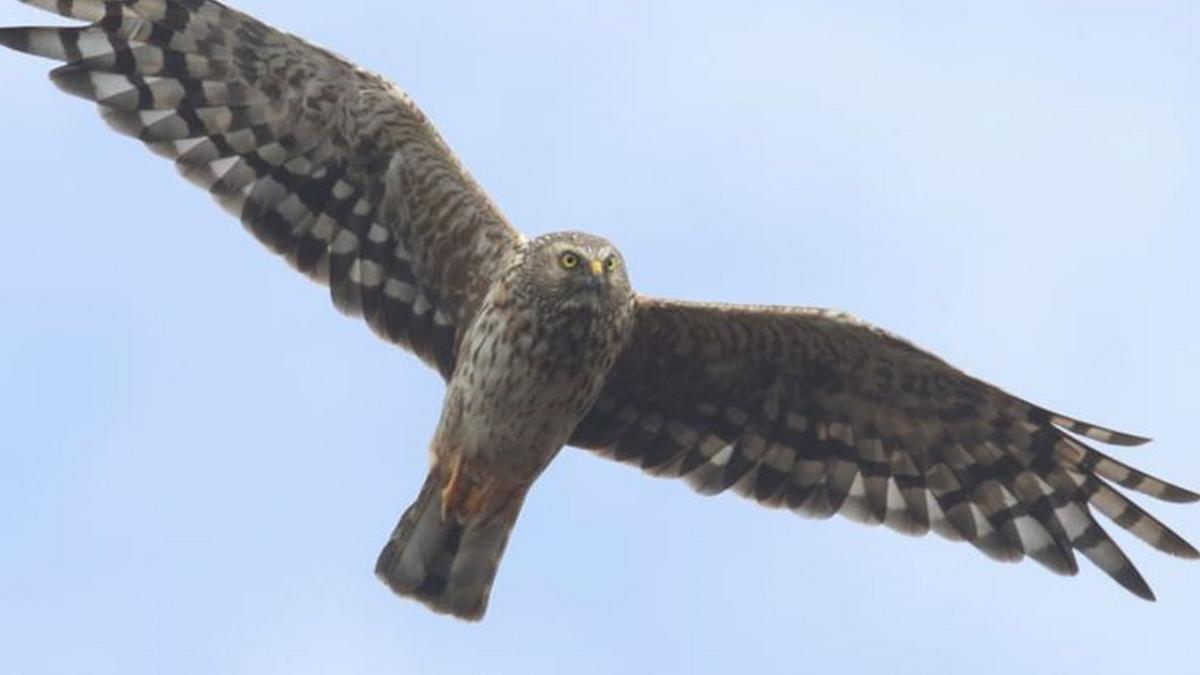Hen harrier disappears after satellite tag stops working
- Published
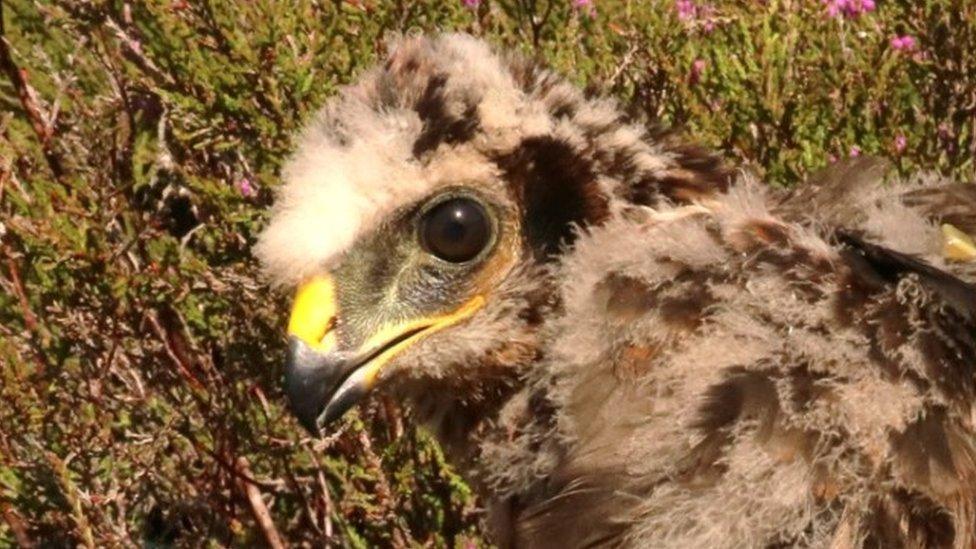
Heulwen had left her nest in Gwynedd and had been flying across north Wales
A rare bird of prey mysteriously disappeared when her satellite tag stopped transmitting after she flew across Snowdonia.
Hen harrier Heulwen was last known to be near Ruabon Mountain, Wrexham, on 29 August.
A tag continues to transmit even when the bird dies, and with the disappearance of another bird in February, police suspect criminality.
Numbers have been recovering since the 1950s. There are 35 pairs in Wales.
"Just a few weeks ago we were celebrating the breeding success of hen harriers across the UK, but already these young chicks are disappearing in suspicious circumstances when they are just a few months old," said the RSPB's Dr Cathleen Thomas.
"It's devastating for those of us involved in watching and protecting these chicks, and a serious blow for an endangered species that continues to decline."
While she said it is unclear what happened to Heulwen, one of the main factors limiting the hen harrier population is "illegal killing" linked to intensive management of driven grouse moors.
Heulwen had been tagged at a nest in Gwynedd as part of a EU-funded project, before travelling across Snowdonia towards Wrexham.
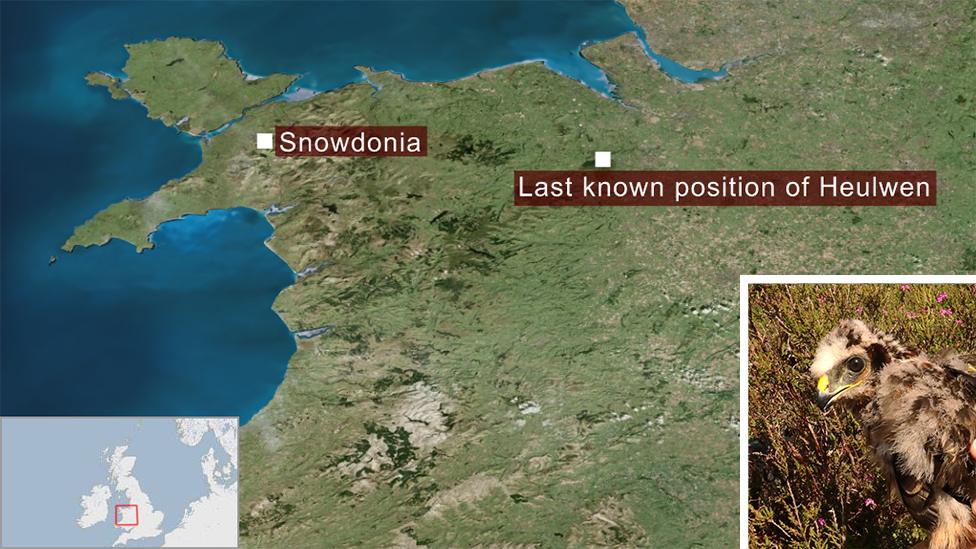
Heulwen had travelled from Gwynedd, across Snowdonia, towards Wrexham
While her satellite was transmitting regularly, it suddenly stopped, with searches of her last known location by the RSPB finding no sign.
It follows the disappearance of Aalin, another hen harrier, in February. Aalin was born on the Isle of Man and travelled to Wales in 2016.
Her tag also stopped transmitting near Ruabon Mountain.
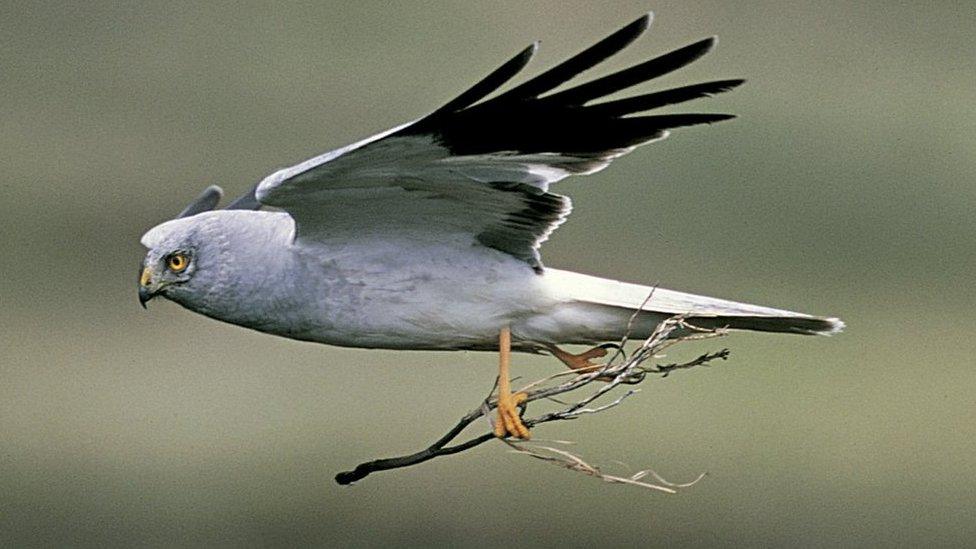
The hen harrier is one of the most persecuted birds of prey in the UK, according to the RSPB
North Wales Police's Rob Taylor called the disappearance "very concerning", adding: "We are keeping an open mind at this time in regards to this enquiry."
While numbers had been increasing over the past 50 years, the latest survey in 2016 showed pairs in Wales dropped from 57 to 35 in six years - the lowest number for more than a decade.
- Published28 June 2017
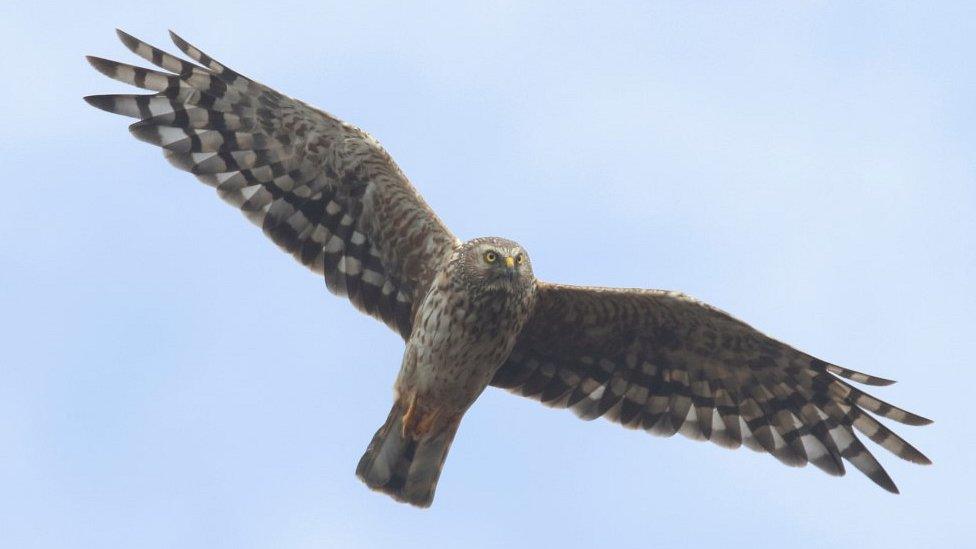
- Published15 July 2018
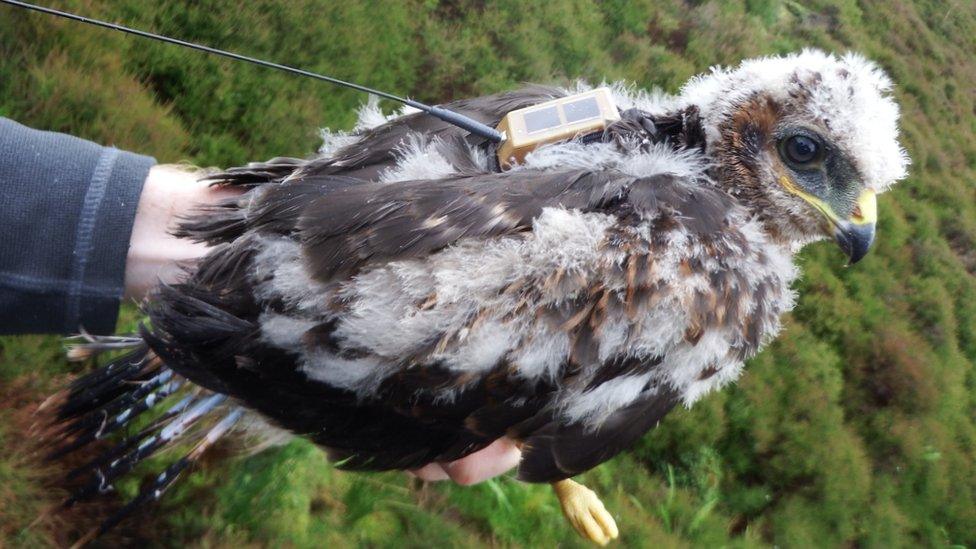
- Published23 March 2018
